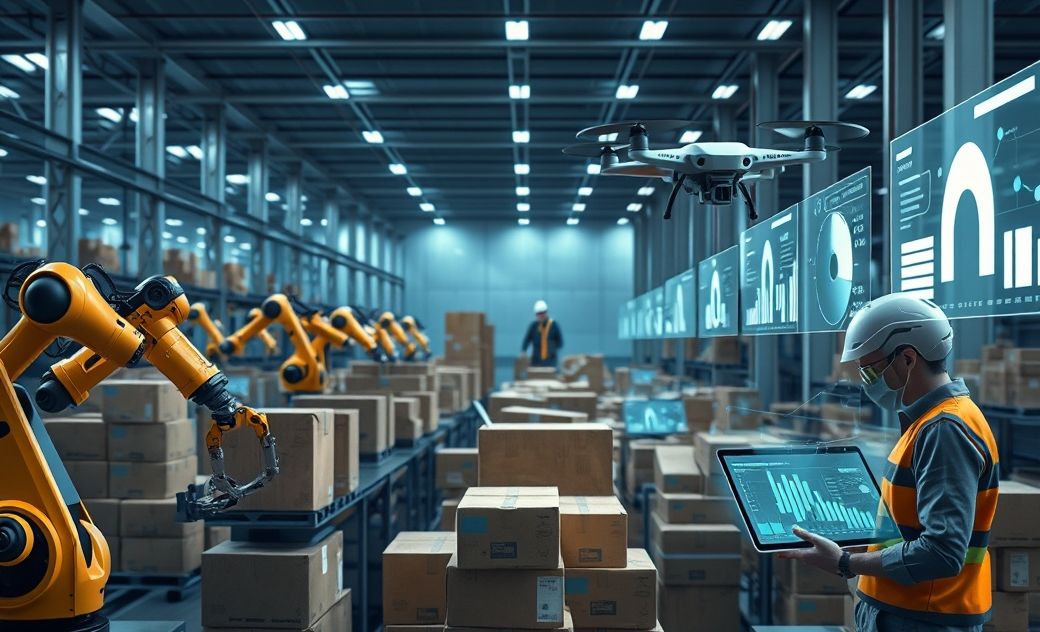The rise of artificial intelligence (AI) has been revolutionary across various sectors, with e-commerce being one of the most significantly transformed. As the backbone of online retail, supply chain management has particularly felt the impact of AI technologies, which are revolutionizing efficiency, reducing costs, and enhancing customer satisfaction. In this article, we explore how AI is reshaping supply chain management in e-commerce.
Enhanced Demand Forecasting
AI algorithms are incredibly effective at processing large volumes of data, which include historical sales data, market trends, and even external factors such as weather conditions. This capability allows for much more accurate demand forecasting. Improved forecasting leads to better inventory management by ensuring that e-commerce businesses have the right products in stock to meet customer demand, thereby reducing instances of overstocking or stockouts.
Reducing Inventory Costs
With accurate demand forecasting, companies can streamline their inventory levels. AI-driven insights minimize excess stock, consequently reducing warehousing costs. Improved inventory turnover also means that products do not sit in warehouses for extended periods, which can lead to depreciation or obsolescence.
Optimization of Logistics
AI is crucial in optimizing logistics operations. From route planning to real-time tracking, AI applications ensure that deliveries are executed in the most efficient manner possible, thereby shortening delivery times and reducing transportation costs.
Dynamic Route Planning
AI systems can analyze traffic patterns, weather conditions, and delivery urgencies to suggest the most efficient delivery routes. This dynamic planning not only saves time and money but also improves driver safety and customer satisfaction with timelier deliveries.
Automated Warehousing
In e-commerce, the efficiency of warehousing operations is paramount. AI-powered robotic systems are increasingly being used to automate complex tasks within warehouses, such as sorting, packing, and labeling. This automation reduces human error and accelerates the entire warehousing process.
Robotic Process Automation (RPA)
Through RPA, businesses can automate repetitive and mundane tasks, allowing human workers to focus on more strategic activities. For instance, automated picking systems can handle high-velocity tasks much faster than human workers, thus streamlining the order fulfillment process.
Enhanced Customer Experience
AI impacts not only the operational side of supply chain management but also greatly enhances the overall consumer experience. Personalized recommendations based on AI analyses drive higher conversion rates and improve customer loyalty.
Chatbots and Virtual Assistants
AI-driven chatbots and virtual assistants provide 24/7 customer service, effectively handling queries and resolving issues in real-time. Their ability to provide instant support boosts customer satisfaction and ensures a seamless shopping experience.
Conclusion
The integration of AI in supply chain management is transforming e-commerce. From enhanced demand forecasting and optimized logistics to automated warehousing and improved customer experiences, AI technologies are making supply chains more resilient and adaptable. As AI continues to evolve, so will its capabilities in driving efficiency and innovation in e-commerce supply chains. Businesses that leverage these AI-driven advancements stand to gain a significant competitive edge in the rapidly evolving digital marketplace.

